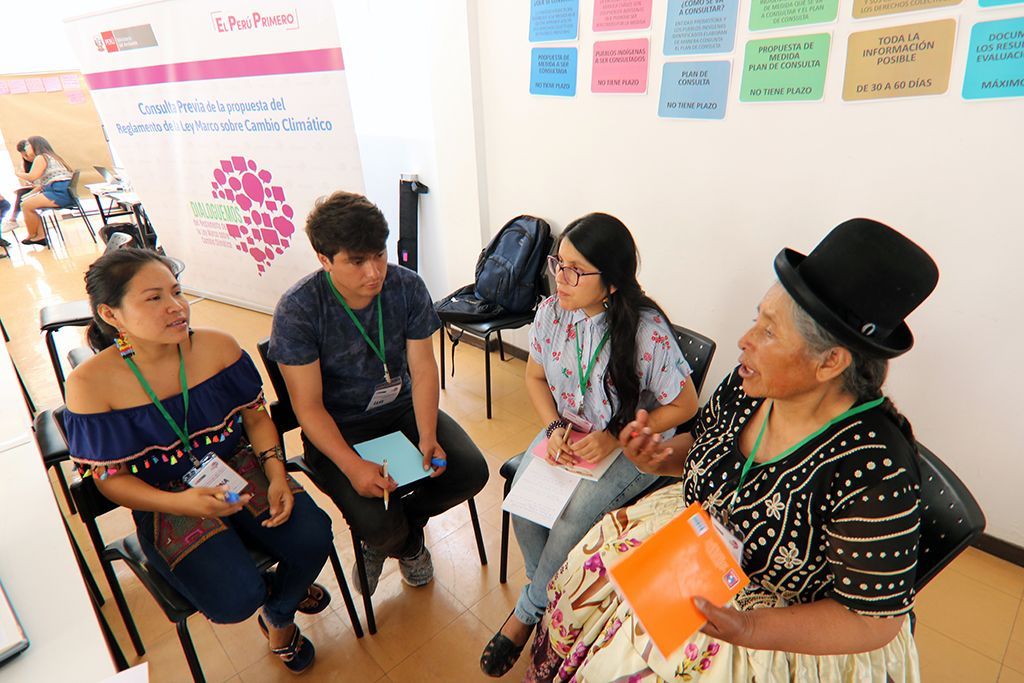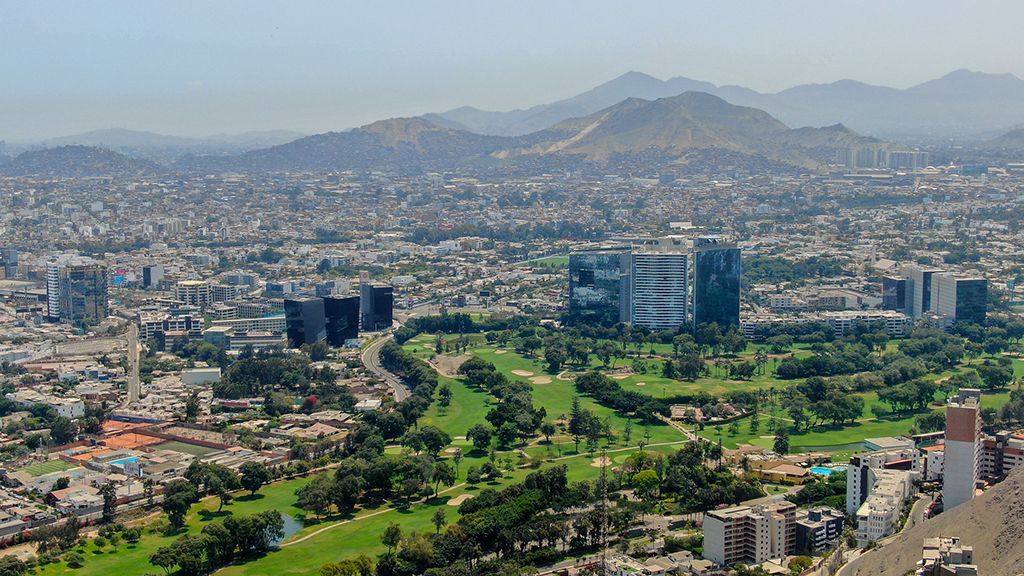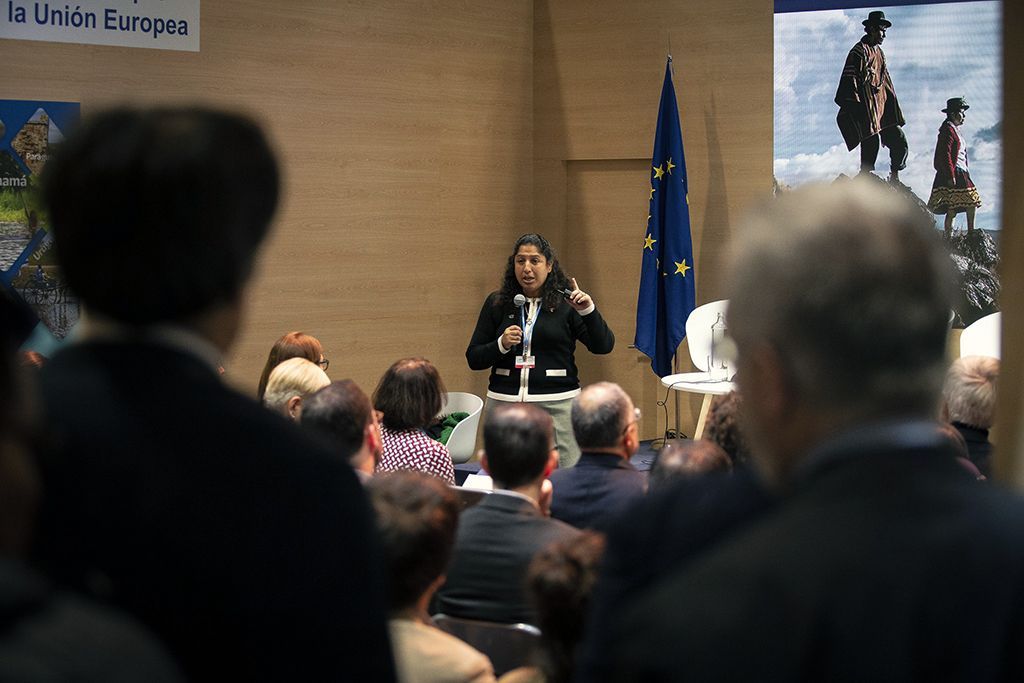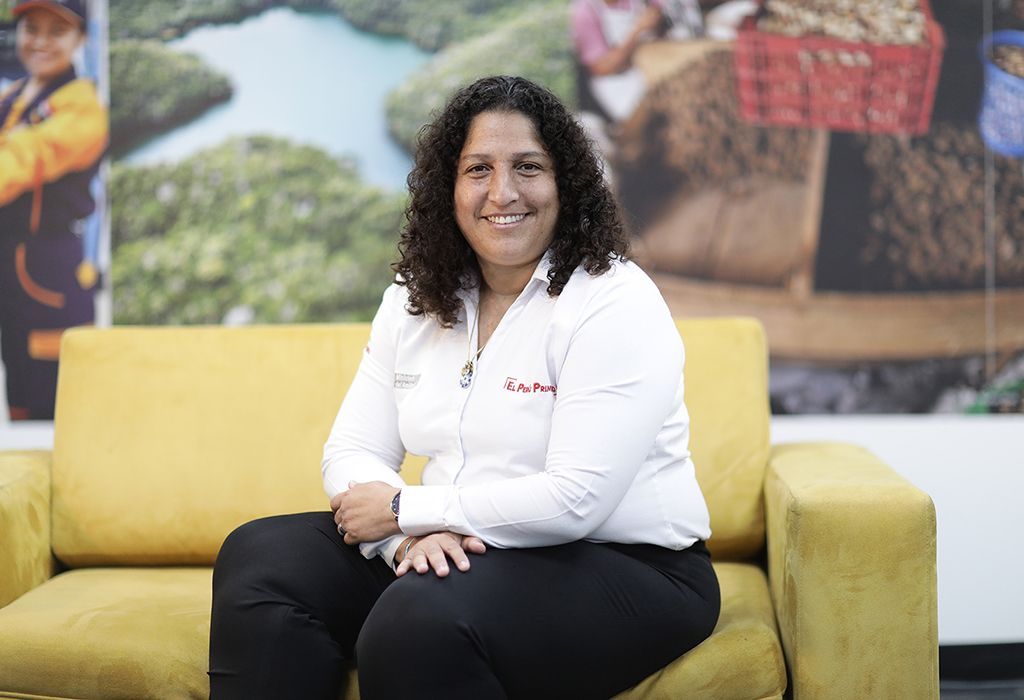Fabiola Muñoz, Minister of the Environment of Peru: “This covid-19 situation is giving us an opportunity to have a much faster change towards environmental sustainability”
The following is a summary of an interview with Peru's Minister of the Environment, Fabiola Muñoz, about the actions her country is promoting in the area of climate change and how the covid-19 situation can be taken as an opportunity to achieve true environmental sustainability
MINAM's proposal entitled “Let’s have a dialogue about Climate Change” is a multi-sectoral, multi-level and multi-stakeholder participatory process. It was relevant for the formulation and socialisation of the NDCs and the Framework Law on Climate Change and its regulations. Why has this experience become an inspiring process for various countries in Latin America and the world?
Precisely because we have just opened up and included our citizens in these conversations. The regulations of the Framework Law on Climate Change has been a very important process for the country, but it has also been very inclusive; society has participated through various decentralised workshops because at MINAM we decided that one of our priorities is to recognise their right to participate with us, but also to recognise that they have a responsibility for what climate change means.
The authorities are the ones who define the norms, the rules of the game, but it is the people, it is the citizenry who will benefit from them and finally can contribute with their actions. And this is precisely a very important feature of this process. Let us remember that Peru is a mega-diverse but also multicultural country; therefore, it is key that we be inclusive and carry out culturally relevant processes.

But also, we have heard the experiences of other countries, we have been nourished by the actions that others have already taken. I am convinced that by the way we have approached this dialogue, this space for exchange, we have managed to be innovative. This dialogue has recognised all of us as citizens, actors in a process of change, and that makes our policies more sustainable in the end, because people take ownership of them. It also makes these policies more multidisciplinary, multi-actor and multi-level, fundamental characteristics for processes as complex as these.
And now, these lessons that we have learned, we are also beginning to share them with others. And I think that has had a very interesting impact in some countries of the region, especially in the work with indigenous peoples, because it is not easy to dialogue with peoples who culturally have other practices; who by tradition have other forms of organisation, of communication and who by nature or by circumstances distrust the State very much. So, sitting at the table is already a big step and having a dialogue in order to reach consensus is an even bigger step.
How will the Framework Law on Climate Change and its regulations strengthen the institutional framework and climate policies in Peru?
We have been working on these issues for more than 20 years, but in recent years we have managed to have a clear vision on some of the strategic objectives that allow us to build this path as a country.
Today I was reviewing some publications from various companies that want to take up the challenge of becoming carbon neutral by 2030, for example. We are also discussing with the population itself what measures we should include in our daily work to continue strengthening ourselves as a country in this area. Likewise, we have just approved an amendment to the Law on Integrated Solid Waste Management to make the issue of classification compulsory in the country. From this, we must promote everything that recycling entails, and this has a direct connection to achieving that citizens assume the responsibility.
It is clear that we need to continue working on public management to articulate the different levels of government with transparent mandates, with clear ideas and policies, but everything has to be linked to the population, because as citizens we have to start implementing this within our own behaviour.
Another example is transport. We must encourage electromobility, sustainable transport, and the use of bicycles. And at this particular time when we are living through covid-19, we have to accelerate these processes of change and take advantage of the opportunities that are opening up to us. Look, we have fought for years in Peru so that the bicycle paths are well marked, that all the big avenues have bicycle paths, that a space for those who want to use a bicycle is respected and the truth is that we have not been very effective. There were initiatives from some local governments, but we had not managed to get a bike path on Tacna Avenue, one of the most important in Lima, and now we have one.
I'll give you another example. We use motorcycle taxis a lot in the northern part of the country. Today the mototaxi will no longer be able to carry three people, it can only carry one to keep social distance. Then the mototaxi driver will only charge one fare and will lose money. But what would happen if we include him in a programme of change so that he stops using fossil fuels and uses an electric motor. The savings he will make will reward him for that loss of passengers and can be perfectly profitable. We can have promotional programmes for the conversion of these types of vehicles. Rewarding those companies, those ventures that seek to reduce emissions, I am thinking of fleets of electric buses for example. If we want to think about private investment, this is just the kind of investment that we must encourage as a State.
Some think this will be temporary because of the pandemic, but these are just the kind of measures that must be permanent. We can no longer return to what we had before; this is an opportunity to move forward, to strengthen institutions and climate policies.
Has covid-19 changed the pace of planning in the process of updating Peru's NDC and long-term strategy?
I think we are one of the sectors that is trying to build opportunity in the middle of the crisis and that opportunity is huge. I still feel that we are not at the speed that we should be. Personally, I think we can do more, but we are moving forward.
In general, all Ministry personnel are working full-time from their homes. The meetings do not stop, the events continue. We are entering into that new logic of not having to be physically together, but we are working together. In fact, we have proposed that the whole process of updating the NDCs should be done by the end of 2020.
But in addition to the process of updating our NDCs, we are discussing the issue of an economic reactivation where the environmental component is inserted. Because we simply must change, we have to recognise that the way we have been doing things is not necessarily the best and that there are other ways of doing things that can bring us more benefits.

We need to increase our sense of urgency, be more proactive, and I believe that this pandemic is giving us that opportunity. We do not have to continue waiting for the rules to arrive before giving our opinion, we have to seek out the sectors that are proposing these rules so that their rules - since they are proposed - already include the environmental component. 2030 is just around the corner and we must also look at a long-term strategy for 2050. There we must be even more ambitious, even more participatory and cooperative.
The environmental component cannot be the cherry on the cake, it must be the flour of the cake. We really need to understand that the environmental component is essential in decision making and these decisions must be increasingly sustainable.
You have mentioned the importance of a green recovery, how would you like to see this process take place? What are the main fears or challenges to be faced?
If you look at most companies that are involved in businesses linked to green businesses, eco-businesses, it's because people are green. So, on principle, they've gotten into it. But the vast majority do or don't do it for economic reasons or out of necessity.
Today, in facing covid-19, we have begun to do many things out of necessity. For example, we ourselves in the State, there was much discussion as to whether we could implement teleworking, well, now we are doing it. We wanted to reduce the use of paper and we are succeeding, when we go back to the office it would be illogical to use paper again.
So what are we doing so that this becomes the rule and not the exception, well we have to get under the skin of the sectors, we have to be able to understand what they are proposing and help them so that what they propose is sustainable.
In this way we will be able to change many things. Deforestation for example, we know that finally it is an economic decision, people change the forest because they want to give it another use because they consider that the use it has as a forest is not profitable for them.
So, we have to change the chip ourselves, to think that people are going to do it because it's green and it's going to maintain biodiversity because they want to do something good for the planet. There may be some who do, but the truth is that people need to eat and we have to make sure that the standing forest gives them food and is enough to live with dignity and send their children to school. In this way, we give value to the products of biodiversity.
I am a minister of the environment, but the truth is that I don't care if the change towards sustainability is done by people on principle, by vocation or by economics. The important thing is that they do it, then they will realise that it is actually the best way to live. But we need people to do community forestry management, to start preferring non-conventional renewable energies, to reward the use of electric mobility, to separate their wastes, and to make all this part of the things we simply have to do.

How can a strategic partner such as the European Union support these processes that are required by MINAM?
I am very grateful for the cooperation and especially cooperation such as that of the European Union. They have not waited to finish their processes in their countries and are already thinking about helping us. They clearly share their lessons.
The technical assistance, the support we have for discussing issues such as the circular economy, as well as the climate action in Peru has been fundamental. In addition, all that has meant support for the very processes of dialogue that we have promoted, where the EUROCLIMA+ programme has been key. So not only do we have the impetus and the will of our own as public servants, we also have the support, technical assistance, financing and partnering for many of the things we have done. And there we have a first point of connection.
The European Union has come a long way with this issue of the European Green Pact and we now must propose measures to revive the economy for a new urban development that will be sustainable. But we also need to leverage various joint actions. For example, and this was something I discussed with European Parliament representation, they should ask their companies operating in our countries to have the same standard as they do in their own countries. We cannot have a double standard; a company cannot be correct in Europe and a polluter in our countries. You cannot propose working with renewable energy there and not do it here. You cannot pursue a circular economy issue there and not do it on this side. Do not come and drop millions of cars with fossil fuels here, because the idea is that we change together and it is a process in which there must be even greater twinning.
For us all the work on the economic recovery strategy is an opportunity to connect with this change that the European Union is making through its Green Pact and the challenge is how we integrate these issues. We believe that there is a series of measures that we are prioritising, transport for example, how we manage to make this management sustainable in issues such as the value of our agrobiodiversity.
I believe that it is precisely the European Union that has understood that it is not sufficient to do things well in its territory, but that we must all do them well because the impact affects us all.
* Fabiola Muñoz, Minister of the Environment of Peru from April 2018 to June 2020.
